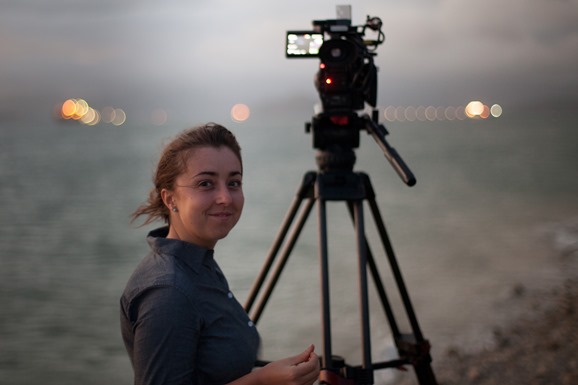The 10th Human Rights Arts and Film Festival (HRAFF) will open tomorrow night with the Australian premiere of documentary The Opposition, directed by Hollie Fifer.
The feature doc details the struggle of 3,000 residents of the Paga Hill community in Papua New Guinea, who watched helplessly as police bulldozed their homes to make way for a luxury resort.
Two community leaders volunteered to help but ended up making very different choices, and one of them, Dame Carol Kidu, would end up lodging an injunction against the film.
Fifer began researching the subject while still at AFTRS, travelling to PNG in 2012 after receiving a research grant from the ABC.
“On the second day the demolition of the Paga Hill community happened, and it was quite clear that this was the story,” recalls Fifer, who would travel to PNG seven times over the next four years.
The young filmmaker served as her own DP on the first three trips before funding from Screen Australia, Screen NSW, BRITDOC and Good Pitch² Australia allowed her to bring cinematographer Vincent Lamberti on board for the subsequent shoots.
Back in Australia, Fifer and editor Bernadette Murray slowly put the pieces together before going into a 22-week cutting block after the final round of shooting in January 2015.
The film became “a lot more epic” over the course of those trips, says Fifer. “The film starts with one demolition scene, one event, and then broadens out. I didn’t expect it to be as international, or to have the scope [it does].”
“You see Joe getting arrested arbitrarily without an arrest warrant, you see the International State Crime Initiative (ISCI) coming in from the UK and offering to collect the evidence for Joe [Moses, the film’s protagonist] to use in the court. You see the storyline of Dame Carol, who goes from community activist to company consultant. It just became much bigger than I thought.”
Dame Carol’s injunction against the film hit at the beginning of last year, shortly before the doc was due to premiere at HotDocs in Toronto.
“One morning I got a call from a journalist at The Australian, who said he wanted to do a piece about Dame Carol’s case against me,” recalls Fifer. “I didn’t know of a case against me. An hour later our lawyer sent over the court documents.”
“We had an interlocutory hearing before HotDocs, at which a temporary injunction was granted, so then we had to redact the film. We just blacked out sections and we had Sarah Snook narrate over the top of those scenes so the audience would still have a bit of a storyline. We thought that the film was in real jeopardy.”
After a heady six months, Fifer and the film’s producers, Media Stockade’s Rebecca Barry and Madeleine Hetherton, emerged victorious in July 2016.
The director has spent the last five months travelling around Europe with Moses, now out of hiding and studying international human rights law in London.
The duo has screened the film at the United Nations, at the Human Rights Council, at Transparency International’s Anti-Corruption Conference and at the Icelandic Center for Investigative Journalism in Iceland.
Now Fifer has brought the film home, with the restored version screening tomorrow at ACMI in Melbourne, with an introduction from Moses and the director.
The Opposition also screens in Canberra on May 29 at Palace Electric, and in Brisbane on June 1 at Palace Barracks.


